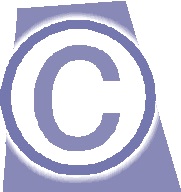
The "first sale" doctrine has long been a limitation on the rights of copyright holders. In essence, the doctrine provides that once a first sale of a copyrighted work is validly made, the copyright owner has obtained all the consideration he or she will receive for that work and nothing need be paid for any future resales. While this was accepted doctrine if the first sale occurred in the U.S., it was not clear what happens if a valid sale of the copyrighted work occurred outside the U.S. and the work was then imported into the U.S. On March 19, 2013, the Supreme Court in Kirtsaeng v John Wiley & Sons, Inc., held that such imports were covered by the first sale doctrine.
The outcome was cheered by museums, libraries and resellers of copyrighted works in the U.S. that obtain materials worldwide. But the decision was a setback for international producers and distributors of copyrighted works that provide targeted products or pricing to specific markets. In fact, that is exactly what Kistaeng did: while he was studying in the United States, Kirtsaeng asked his friends and family in Thailand to buy copies of foreign edition English language textbooks at Thai book shops, where they sold at low prices, and mail them to him in the United States. Kirtsaeng would then sell them, reimburse his family and friends, and keep the profit. So look for businesses based on taking advantages of these price imbalances--what I call "copyright arbitrage"--to flourish in the future.
The outcome was cheered by museums, libraries and resellers of copyrighted works in the U.S. that obtain materials worldwide. But the decision was a setback for international producers and distributors of copyrighted works that provide targeted products or pricing to specific markets. In fact, that is exactly what Kistaeng did: while he was studying in the United States, Kirtsaeng asked his friends and family in Thailand to buy copies of foreign edition English language textbooks at Thai book shops, where they sold at low prices, and mail them to him in the United States. Kirtsaeng would then sell them, reimburse his family and friends, and keep the profit. So look for businesses based on taking advantages of these price imbalances--what I call "copyright arbitrage"--to flourish in the future.
